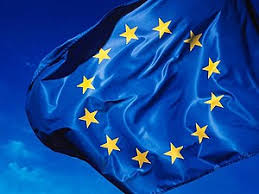
Leaders of the European Union will announce on Friday that they aim to reduce their reliance on global suppliers of food, microprocessors, pharmaceuticals, raw resources, and digital technologies, as Russia's invasion of Ukraine has provided yet another reason for the EU to become more self-reliant.
Since the Covid-19 pandemic revealed that a breakdown in global supply chains might leave the EU without access to medications or microchips, the 27-nation union has been examining ways to become more autonomous in many crucial sectors.
According to EU officials, the crisis in Ukraine has only served to emphasise this point, as Europe will now battle to wean itself off Russian gas, oil, coal, and raw materials, as well as maybe locate other wheat suppliers.
"Confronted with growing instability, strategic competition and security threats, we decided to ... take further decisive steps towards building our European sovereignty, reducing our dependencies," a draft joint declaration of the leaders meeting in Versailles outside Paris, showed.
The EU will minimise its reliance on imported vital raw resources through strategic partnerships, stockpiling, recycling, and resource efficiency, according to the proclamation.
The EU intends to construct its own plants in semi-conductors and boost its share of the world market to 20 per cent by 2030, according to the proposal. Taiwan and the United States are currently the leading suppliers of semiconductors.
The EU will also invest in research and development in the health sector, as well as digital technologies such as artificial intelligence, cloud computing, and 5G mobile telephony rollout, rather than importing them from China, according to the paper.
The EU plans to increase plant-based protein production in order to become more food self sufficient, according to the report.
The leaders, according to the report, aim to fund such measures with public funds in order to attract much more private investment. They also seek to use the European Investment Bank, which is controlled by EU states, to "catalyse investments, including more risk-financing for entrepreneurship and innovation."
France and Italy have been lobbying the EU to agree to a new joint debt issue for the anticipated additional outlays, based on the EU's 800 billion euro recovery fund, of which only 74 billion euros has been released so far.
Others, such as Germany, Austria, the Netherlands, and the Nordic nations, disagree, believing that the EU should first spend the money it already has before borrowing more.
According to the text, the leaders would also state that their budgetary policies must allow them to spend more on defence, investment, and coping with the bad economic impacts of the war in Ukraine.
(Source:www.techinvestornews.com)
Since the Covid-19 pandemic revealed that a breakdown in global supply chains might leave the EU without access to medications or microchips, the 27-nation union has been examining ways to become more autonomous in many crucial sectors.
According to EU officials, the crisis in Ukraine has only served to emphasise this point, as Europe will now battle to wean itself off Russian gas, oil, coal, and raw materials, as well as maybe locate other wheat suppliers.
"Confronted with growing instability, strategic competition and security threats, we decided to ... take further decisive steps towards building our European sovereignty, reducing our dependencies," a draft joint declaration of the leaders meeting in Versailles outside Paris, showed.
The EU will minimise its reliance on imported vital raw resources through strategic partnerships, stockpiling, recycling, and resource efficiency, according to the proclamation.
The EU intends to construct its own plants in semi-conductors and boost its share of the world market to 20 per cent by 2030, according to the proposal. Taiwan and the United States are currently the leading suppliers of semiconductors.
The EU will also invest in research and development in the health sector, as well as digital technologies such as artificial intelligence, cloud computing, and 5G mobile telephony rollout, rather than importing them from China, according to the paper.
The EU plans to increase plant-based protein production in order to become more food self sufficient, according to the report.
The leaders, according to the report, aim to fund such measures with public funds in order to attract much more private investment. They also seek to use the European Investment Bank, which is controlled by EU states, to "catalyse investments, including more risk-financing for entrepreneurship and innovation."
France and Italy have been lobbying the EU to agree to a new joint debt issue for the anticipated additional outlays, based on the EU's 800 billion euro recovery fund, of which only 74 billion euros has been released so far.
Others, such as Germany, Austria, the Netherlands, and the Nordic nations, disagree, believing that the EU should first spend the money it already has before borrowing more.
According to the text, the leaders would also state that their budgetary policies must allow them to spend more on defence, investment, and coping with the bad economic impacts of the war in Ukraine.
(Source:www.techinvestornews.com)





